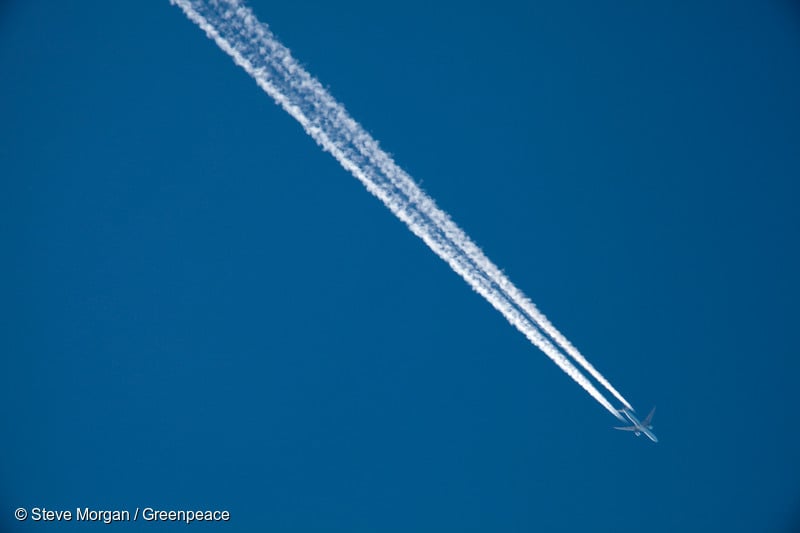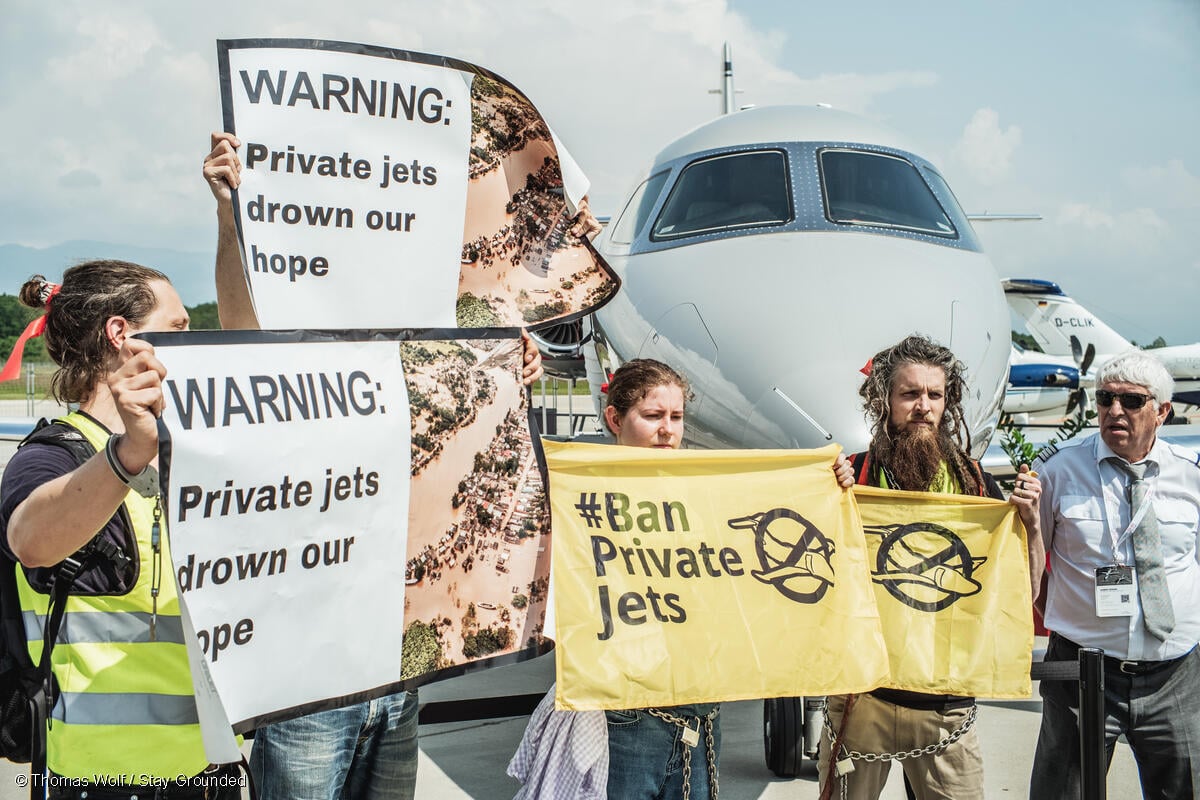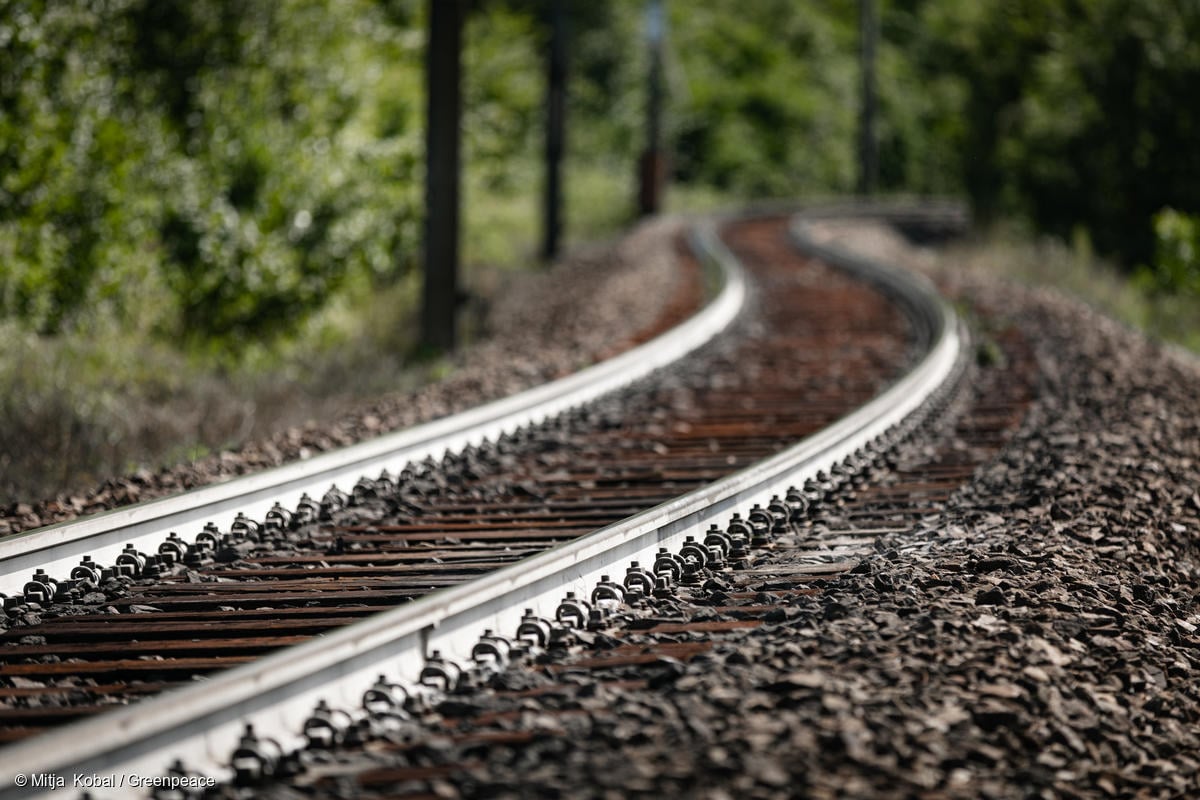
The air transport sector is one of the most affected by the coronavirus crisis : airlines and airports could be compelled to close and workers are already losing their jobs or regular wages (for example at Norwegian Air, Ryanair, Virgin Airlines or Wizz’air). EU air traffic has been cut by up to 95% and analysts say that air traffic growth will be slowed down for years.
Most airlines are short on liquidity and therefore asking for bailout plans amounting to $200 billion on a global level. The impact of Covid-19 will also extend to the aeronautical and tourism sectors. A few European governments have already decided to give loans and guarantees to airlines (Sweden, Norway) or nationalised their airline (Italy), and more bailouts plans will follow. No environmental conditions were attached to this public support so far.
Whereas many executives and shareholders have racked up profits over years, the sector has been dependent on public support to develop – state aid for airports, low cost airlines[i] and infrastructure linking airports with nearby cities, but also tax exemptions, such as VAT and kerosene tax. Public support was offered despite the fact that air transport crystallises many inequalities[ii] and has been the fastest growing source of greenhouse gas emissions in Europe over the past decades, causing noise and air pollution too[iii].
This must stop. If governments make the choice of unconditional bailouts and public support for the aviation industry, they would make other crises worse. Indeed, history shows that in the aftermath of each crisis, aviation demand usually goes back to past levels, before a quick and unprecedented surge.
Returning to ‘normal’ cannot be an option – aviation de-growth is necessary to restrict global heating to 1,5°C and limit climate breakdown. This crisis must be the starting point for a just and green transition in the transport sector. Some companies may fail, as long as workers are protected. Indeed, bailout plans should be focused on supporting people and preparing for a coordinated and planned aviation de-growth, and an unprecedented boost for alternatives to polluting planes and cars, which would also create many sustainable jobs.
Policy demands
1 – Bailout money should go to workers to secure their income and protect their wages, health, livelihoods, and a substantial just transition fund should be set up to support the reskilling of workers, industrial conversion, and to organise the scaling down of the aviation sector, alongside trade unions, in a just manner.
2 – A three-year ban on cash flows to shareholders, such as dividends and on-share buybacks, as well as increases in CEO salaries and bonuses, must be a condition for companies receiving bailouts.
3 –The aviation sector needs to comply with the goal under the Paris climate agreement to limit global heating to 1.5°C, which implies binding yearly reduction targets in greenhouse gas emissions, and therefore a significant cut in aviation in demand compared to pre-crisis levels.
4 – A ban on flight connections within a country and between two neighbouring countries should be implemented when there is a bus or train alternative with journeys under six hours, or a night train, with the aim of banning all short-haul flights, as alternatives develop.
5 – Prepare a comprehensive plan to boost a European-wide network of better day and night trains, ferries, public transport, cycling infrastructure, and inter-modality, including an unprecedented public investment and fair fiscal measures, which reduce emissions and generate revenues for the European Union and its member states to provide access to clean mobility and more local tourism for all.
[i] Evidence shows that 24% of Ryanair airports are likely to be propped up by subsidies – fueling rapid emissions growth.
[ii] Only a minority of Europeans flies frequently. Flying from Brussels to Madrid and back generates about 220 kg CO2. There are 17 countries where the average person produces less CO2 in a year. Guardian.
[iii] Carbon pollution from flying in Europe has risen by a staggering 26% in the last five years, and airlines ranked among the biggest carbon emitters in European countries in 2018, EU data shows.
Contact: Greenpeace EU press desk: +32 (0)2 274 19 11, [email protected]
For breaking news and comment on EU affairs: www.twitter.com/GreenpeaceEU
Greenpeace is an independent global campaigning organisation that acts to change attitudes and behaviour, to protect and conserve the environment and to promote peace. Greenpeace does not accept donations from governments, the EU, businesses or political parties.



